Shri Digambar Jain Lal Mandir
The Shri Digambar Jain Lal Mandir (श्री दिगंबर जैन लाल मंदिर) is the oldest and best known Jain temple in Delhi and one of the oldest temples of the city at all. The date of construction goes back to the time of the reign of Mughal emperor Aurangzeb. The impressing red building is situated right opposite the Lal Qila (Red Fort), at the entrance of the main road, near the main street of Chandni Chowk.
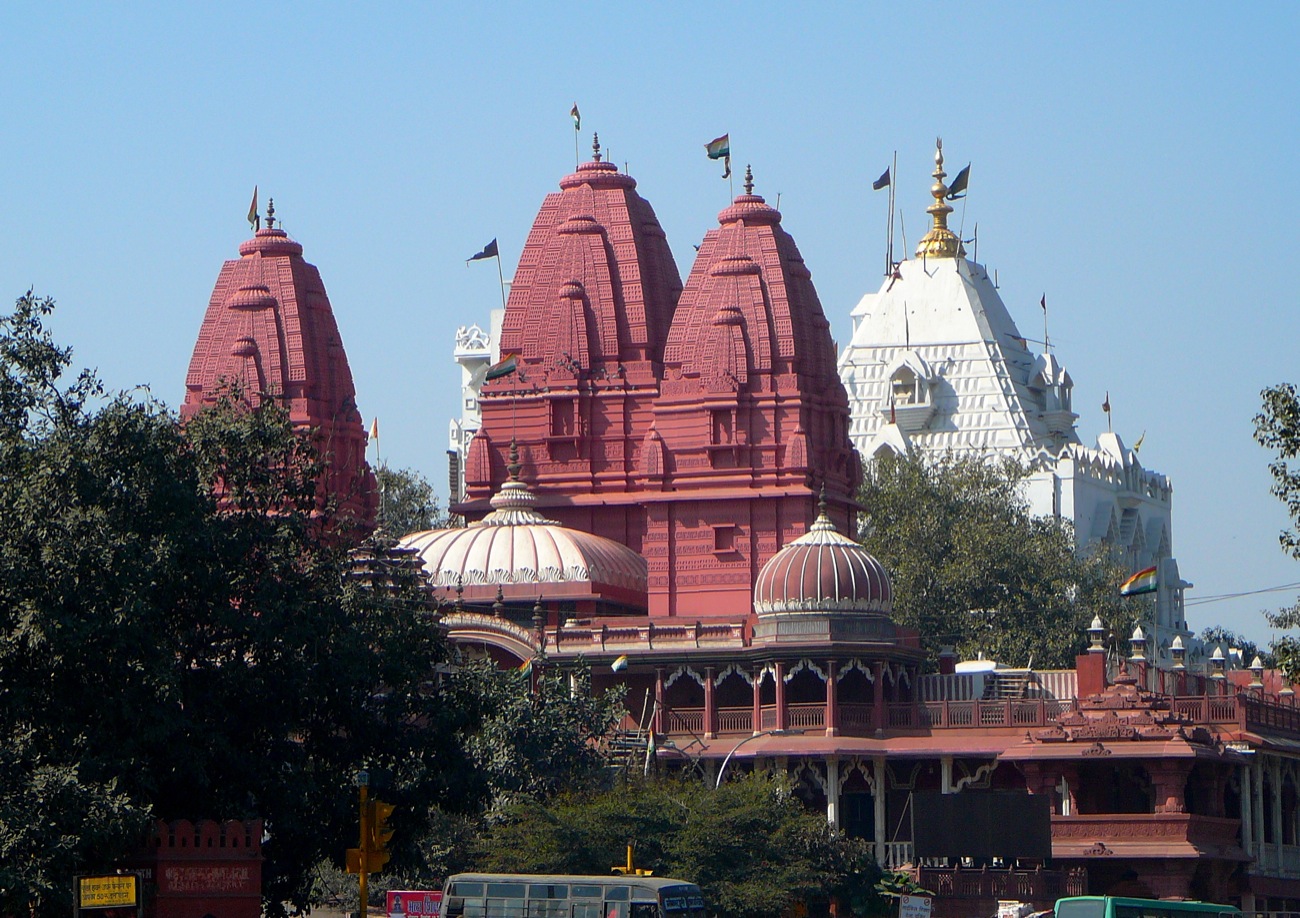
1. The Temple
The Digambar Jain Temple popularly known as Lal Mandir ("red temple") is the oldest temple of Digambar Jain religion in Delhi, built in 1656 by red sandstone. This temple has undergone many alterations and additions in the past and was enlarged in the early 19th and the middle of the 20th century.
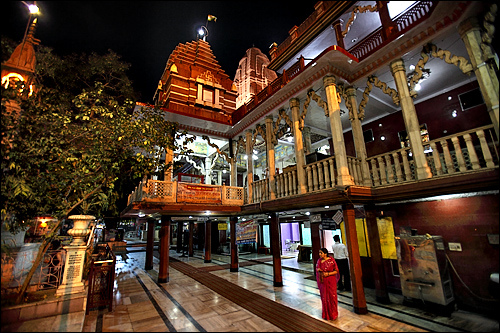
Photo by oochappan
Primarily the temple was constructed without a Śikara since the construction of the rising tower over the sanctum sanctorum was not permitted during the Mughal period. It was not until India's independence, however, that the contemporary Śikaras were constructed. But in spite of the Mughal proscription of the Śikara building the imperial treasurer Raja Harsukh Rai obtained imperial permission to build a temple with a sikhara in the Jain neighborhood of Dharamapura, situated in the immediate vicinity of Chandani Chauk.
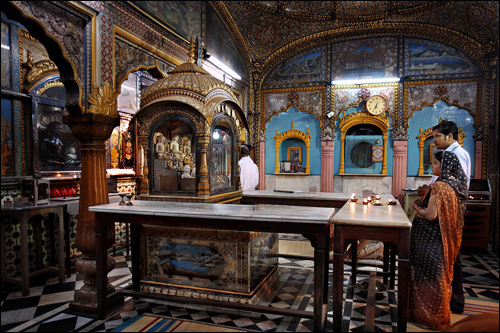
Photo by oochappan
The Architecture of the temple bear detailed carvings and decorative paintwork in the antechambers surrounding the main shrine dedicated to the Parshvanath, the twenty-third Tirthankara. In front of the temple stands a column of honour (manastambha), the main devotional area of the is situated on the first floor. It is reached by ascending to the terrace after crossing the small courtyard of the temple, surrounded by a colonnade.

Photo by oochappan
In 1931 a Digambar Jain monk named Acharya Shantisagar arrived in Delhi and visited the temple. He was the first Digambar Jain monk to visit Delhi after a gap of eight centuries.
2. The Bird's Charity Hospital
Within the temple area a unique medical center for birds is situated, the "Bird's Charity Hospital". Free treatment is given here, which draws inspiration from the message of 'Live and let Live' given by Lord Mahavir, the twenty-fourth Tirthankara of the Jains. It serves as a rescue sanctuary for partridges, caught and wounded by fowlers and bought in bulk by Jain merchants who bring them here to recover, and there are separate wards for pigeons, parrots, sparrows and domestic fowl. Squirrels, who will not hurt the birds, are also treated, but birds of prey are seen on a strictly outpatient basis as they are not vegetarian.
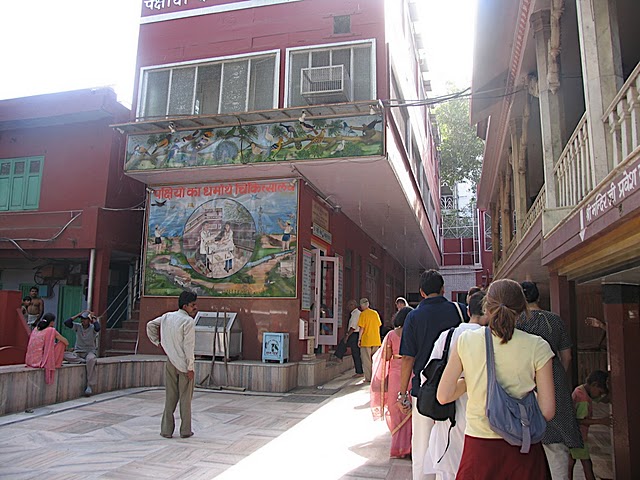
The hospital is managed by "Aggarwal Digambar Jain Panchayat, Delhi". It was founded in 1956 on the Jain principle of aversion to killing (Ahimsa). The hospital has separate wards in form of cages for different species of birds like sparrows, parrots, domestic fowls and pigeons. It also has a research laboratory and even an intensive care unit for its serious patients.
The people, especially the Jain merchants of the area, bring the birds that are usually wounded by ceiling fans or by other means for medical treatments. The hospital admits a maximum of 60 injured birds per day. The birds are then treated, bathed and are given nutritious diet so that it recover soon. It is eventually released, especially on Saturdays, after it is declared fit and healthy.
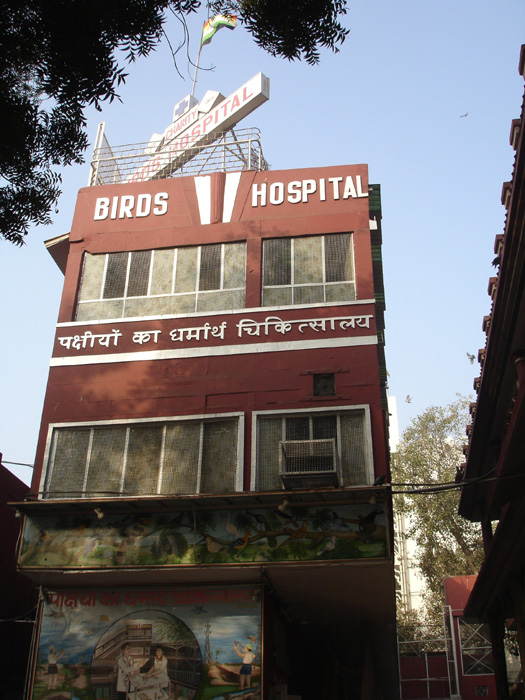
By this means, the three-storey hospital founded in 1956 treats nearly 30,000 birds every year. The birds are first held in the intensive care unit and are eventually transferred to the general wards, where it regain its wings and eventually fly off. Fed, a vegetarian diet of bread and cheese, treatments are free of cost and funded by Jain donations. The hospital separates its vegetarian patients from its non-vegetarian counterparts. Carnivorous predators such as eagles, hawks and falcons are housed exclusively on the first floor. Every Saturday, a section of the roof is opened and the recovered birds fly away. The hospital follows a central tenet of Jainism - a commitment towards enabling the freedom of all living beings, no matter how small or insignificant it is. And once the birds are admitted, those are never returned to its owners for fear of likely confinement.